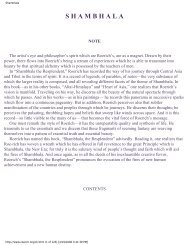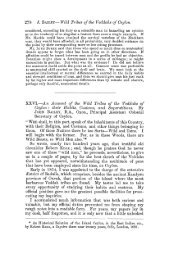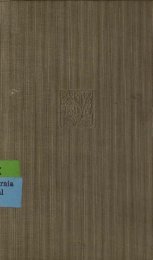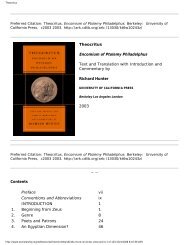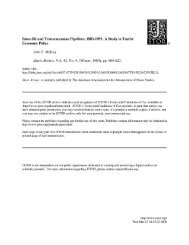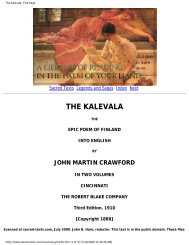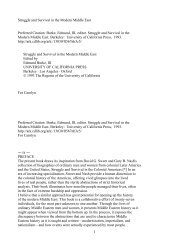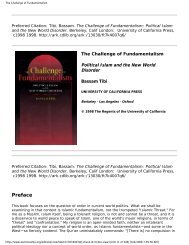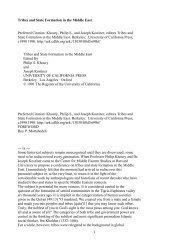Between Two Worlds Kafadar.pdf
Between Two Worlds Kafadar.pdf
Between Two Worlds Kafadar.pdf
Create successful ePaper yourself
Turn your PDF publications into a flip-book with our unique Google optimized e-Paper software.
time. Furthermore, we should note the gender-specific designation of the subject<br />
of the inquiry: "great men of the Ottoman state." However one chooses to<br />
characterize their ethnic origins, some of those great men, Köprülü failed to<br />
note, were born to great women who were not of Turkish birth, like Nilüfer Hatun<br />
, the mother of Murad I.<br />
As for lesser men and women, Köprülü seems to have been equally keen on<br />
maintaining the purity of as many as possible, absolving them of renegadism and<br />
probably also the Ottoman conquerors of forced conversion. Against the evidence,<br />
he argues: "According to Ottoman sources, Göynük, which was completely inhabited<br />
by Christians when Ibn Battuta passed through it, should have been Islamized<br />
toward the end of the same century, since Yildirim Bayezid had people brought<br />
from there and from Torbali to establish the Muslim quarter that he founded in<br />
Constantinople. Even if this report were true, it would be more correct to<br />
explain it by the establishment of a new Turkish element there than by a general<br />
conversion. Logically one cannot easily accept that the Muslim quarter in<br />
Constantinople was simply settled by Greeks who had recently become<br />
Muslims."[28]<br />
― 41 ―<br />
Later on, he even drops the cautious "almost invariably" and states with<br />
absolute certainty that "the Ottoman state was founded exclusively by Turks in<br />
the fourteenth century." And then he finally lets the cat out of the bag when he<br />
argues, quite logically, that "just as the fact that a significant number of the<br />
riders of the Byzantine Empire came from foreign elements is no proof that the<br />
Greeks lacked administrative ability, an analogous situation occurring in the<br />
Ottoman Empire cannot be used as proof that the Turks lacked administrative<br />
ability."[29]<br />
The last point, namely, the "administrative ability" of a people, to be<br />
demonstrated to the "civilized world" in particular, was much more than a<br />
question of national pride, as was mentioned above. Such arguments resonated<br />
with one of the basic principles in the "new world order" between the two great<br />
wars: a people had a right to nationhood in a civilized world only if they could<br />
prove that they had in their historical experience what it takes to create a<br />
stable state and to govern in a civilized manner. That is one of the most<br />
important reasons why nation-states took up the construction of a past as avidly<br />
as they drew plans for industrialized modernity. New generations had to, as<br />
Mustafa Kemal Atatürk put it in a saying that is now inscribed on many public<br />
sites in Turkey, "be proud [of the nation's past achievements], work hard, and<br />
be confident [of the future]." Köprülü steered his own course dear of official<br />
history and of the so-called Turkish history thesis with its notorious, though<br />
fortunately short-lived, excesses like the "sun-language theory."[30] Naturally,<br />
however, he was a man of his times.<br />
No perilous pitfall in logic seems to have trapped historians more than the<br />
genetic fallacy, perhaps because, by the nature of their profession, they are<br />
prone to evaluating the truth value of an assertion on the basis of its origins.<br />
It seems that the validity of Köprülü's account was suspect not necessarily<br />
because its contents were analyzed but merely because he was known to have<br />
41




